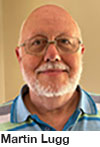Personal Contribution Award
Award for BINDT members
Award criteria
Purpose: The purpose of this award is to recognise a valuable and significant personal contribution to the British Institute of NDT and the wider NDT/CM/SHM community. This award acknowledges individuals who have contributed to and influenced the wellbeing of the Institute.
Details of the award: The award will consist of a gift to the value of £300, an invitation to the NDT Annual Conference Dinner and one night’s accommodation, a framed certificate signed by the President and the Chief Executive Officer, together with a personalised letter from the President.
Eligibility: The successful nominee must have been a long-term active member of the British Institute of NDT (minimum of ten years) who, during that period, must have supported the Institute as an active committee member. The successful nominee will stand out as having made a considerable personal contribution towards the charitable objectives of the Institute.
The proposer of the award should be a voting member of the Institute. If they are not, they will need to ensure the application is endorsed by an Institute voting member.
Frequency: There is no periodicity for this award; suitable recipients will emerge from time to time and their selection will be obvious by their acknowledged contribution. It will be possible for more than one candidate to be given this award in the same calendar year.
Nomination arrangements: The nomination must be seconded by an elected member of Council and receive a 75% positive response from elected members who are in attendance on the day of the election; one proxy vote may be submitted to Karen Cambridge by any non-attending Council members.
Awarding arrangements: The award will be made at the NDT Annual Conference Dinner and will be awarded by the President.
Committee: MQ&E Committee and ratified by Council.
Winners
2025 winner: Dr Martin Lugg
The Personal Contribution Award for 2025 is awarded to Dr Martin Lugg.
Like most people he has worked with, Martin fell into non-destructive testing (NDT) without really knowing what he was getting into.
Martin had followed his academic interest in astrophysics as far as he could before realising he needed to find a career in something else. Looking around at postdoctoral opportunities, he came across a position at University College London in Bill Dover’s department in something called NDT, which he thought sounded interesting. Bill had Ministry of Defence (MOD) funding to study the effect of stress on the accuracy of alternating current potential drop (ACPD) crack depth measurements.
Soon after, Bill obtained oil company funding to develop a version of ACPD that did not require electrical contact and so could be used underwater on welded tubular joints. Martin was part of the four-man team that developed the modelling of magnetic fields around surface cracks that led to the alternating current field measurement (ACFM) technique. Most of his subsequent career was as NDE Development Manager and then Technical Director with TSC, the spin-off company that commercialised the technique.
Martin joined the British Institute of Non-Destructive Testing (BINDT) soon after joining TSC over 35 years ago, presenting papers at conferences and assisting in the development of ACFM PCN examinations, being grandfathered as a Level 3. When he was able to spare more time on volunteer activities, Martin joined the Engineering Council Working Group (ECWG) and has been a member ever since. He is also currently in his third term as an elected member of Council. For some reason, Martin took an interest in the documentation associated with the registration process and when the volunteer who controlled this retired, Martin was left in charge. He found that, as the system had evolved over the years, there were a lot of unused forms and procedures, and unnecessary complication, so he took on the task of reorganising everything with the help of BINDT staff member Julie Grieve. It turned out to be a mammoth task, but they ended up with what Martin believes is a much more usable system. Julie took the opportunity to leave BINDT soon after!
Meanwhile, those involved in interviewing prospective registrants were invited to get involved with the new NDT apprenticeship scheme set up by Roger Lyon and, on his sad demise, Martin’s previous work meant he could not refuse taking over the documentation in this area. Unfortunately, while registration documentation only has to satisfy the Engineering Council, apprenticeship documentation now has to satisfy the Office of Qualifications and Examinations Regulation (Ofqual), which is much stricter on making sure every base is covered. Many new procedures and forms had to be produced (this time with the help of Cindy Bailey, Manager – Membership & Registration, BINDT) before BINDT finally got approval to resume end-point assessments.
Martin found it personally very satisfying to be involved in BINDT regaining its status as an approved End-Point Assessment Organisation (EPAO) and he views the receipt of this Personal Contribution Award as the icing on the cake (even if it is for admin work, rather than anything NDT-related!).
Past winners:
2018 Roger Lyon
2019 Peter Wallace
2020 No Award
2021 John Moody
2022 Steve Greenfield
2023 Dr Mike Smith
2024 Dr Colin Brett
A nomination form can be downloaded here.
Details of all Institute awards can be found here.